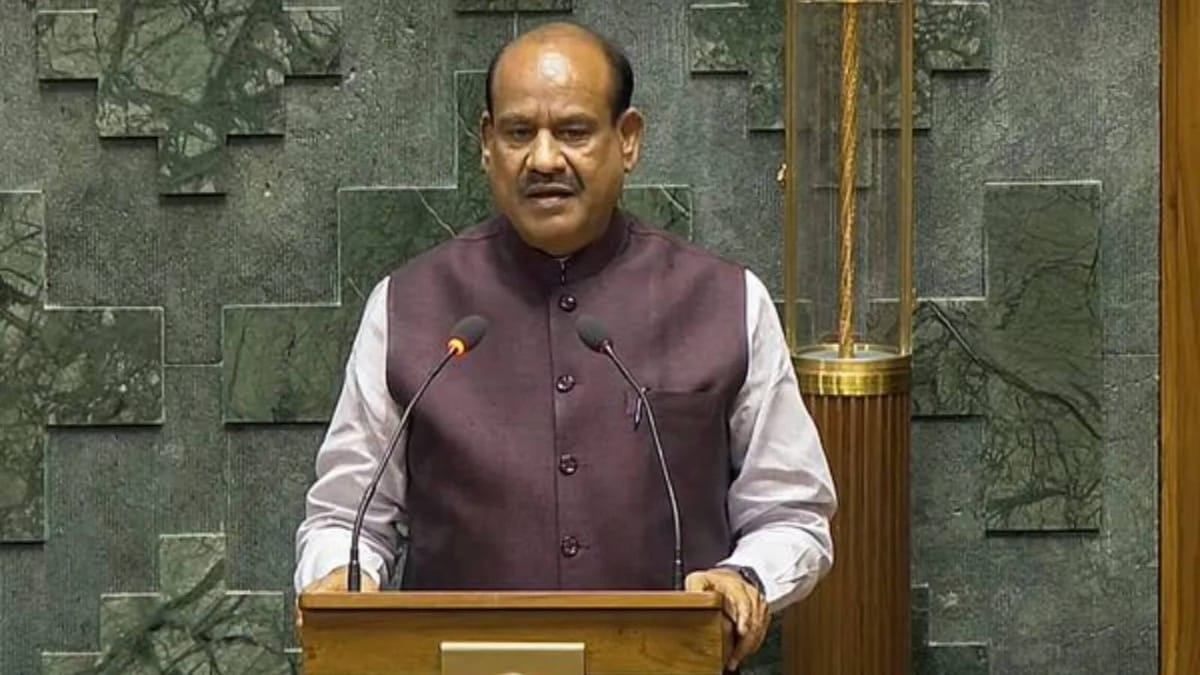
Lok Sabha
The Question Hour in Lok Sabha (Lower House) progressed into a discussion on the implementation of PM-KISAN, and the disbursement of the Minimum Support Price (MSP) to farmers. The opposition argued about the MSP prices still being low. This transpired the leaders from the INDIA bloc (united opposition) to walk out of the session.
Leaders from the Congress, Aam Aadmi Party (AAP), Rashtriya Janata Dal (RJD), Shiv Sena (UBT), Dravida Munnetra Kazhagam (DMK), and Left parties, among others, demonstrated outside Parliament and chanted anti-Prime Minister Narendra Modi slogans. They also reaffirmed their call for a joint parliamentary investigation into the Adani issue.
While the Samajwadi Party (SP) eluded the walkout protest, Akhilesh Yadav, the leader of the SP, accused the BJP of causing the violence in Sambhal and stated that the disturbances were intended to sabotage communal harmony.
In the afternoon session, External Affairs Minister S Jaishankar briefed the Lok Sabha about the India-China border patrolling agreement. "We remain committed to engaging with China to arrive at a fair, mutually acceptable framework for boundary settlement", he added.
He also said, "The House is cognizant of the fact that China is in Illegal occupation of 38,000 km² of Indian territory in Aksai Chin."
In the Lok Sabha (Lower House), the Finance Minister, Nirmala Sitharaman, moved the Lower House to pass the Banking Laws (Amendment) Bill, 2024.
Gaurav Gogoi, Congress MP, stated that the banking bill will destabilise the current banking system and structure. He also questioned the statements made by the External Affairs Minister saying the government on one hand criticises the Chinese administration but the trade deficit with China has increased under PM Modi's tenure. His comments were deleted by the Chairman's decision according to Rule 94 of the Parliament, which confines the comments by the opposition only to the bill on the table.
DMK MP Rani Srikumar noted that a total of ₹16.26 lakh crores of bank loans have been wiped off, of which ₹7.4 lakh crores were written off for large corporations. Public sector banks' annual write-offs have climbed from ₹7,087 crores in 2013 to over ₹1.2 lakh crore in 2023. The government justifies that this is a normal practice for banks to maximise their capital by cleaning up their balance books, she added.
The opposition also pointed out that the CIBIL score of lower and middle-class people is deteriorating without any disclosures by the banks. They also pointed to the problem of cyber fraud, repayment of student loans and the settlement of consumer deposits.
The Finance Minister addressed the concerns of other MPs saying, that in the last 10 years, Indian banks have grown significantly. Opening up of zero-balance accounts has facilitated banking services to reach more population than ever, calling it the "true nationalisation of banks". She said she is very happy with how Indian banks are performing today and India should take pride in its banking system.
She argued that all public sector banks are becoming profitable. The return on equity is 13.8%, and the return on assets is 1.3%. In March 2018, gross and net non-performing assets (NPAs) were 14.58 to 7.97, and in September 2024, they were 3.12 and 0.63%.
Lok Sabha passed Banking Laws (Amendment) Bill, 2024
Rajya Sabha
In the afternoon session, the Rajya Sabha (Upper House) discussed the Oilfields (Regulation and Development) Amendment Bill, 2024.
In reply to Hardeep Singh Puri, Petroleum and Natural Gas Minister, Congress' MP Shaktisinh Gohil said, the Minister provided no clear indication in his proposal on how the bill would increase the FDI in oil production sectors.
In reply to the Petroleum Minister, Trinamool Congress MP Dola Sen said, the government saved $25 billion by importing Russian crude oil at a discount, but "not a single penny was used to benefit the people."
M Thambidurai, AIADMK MP, said the exploration of oil would affect fishing activities and in Tanjore, petroleum exploration will affect agriculture.
BJP MP Ghanshyam Tiwari supported the Petroleum Minister's argument saying, India imported crude oil at a relatively lesser price amid global tensions. He added, that India has only realised 10% of its total capacity in petroleum production and this bill lays a roadmap for achieving the goal of becoming a global supplier.
AAP MP Sanjay Singh said the bill focuses on attracting corporate investments while ignoring public-sector companies like ONGC. He also said the prices of petrol and diesel were not reduced even with global prices coming down significantly. His speech was cut short after the MP started raising questions about the nexus between the government and Adani.
In reply to all the issues raised by the opposition, Hardeep Singh Puri said, that between 2006 and 2014, five major oil companies exited India. He also stated leasing approvals will remain with the state bodies. The legislation will unify the legislation and licenses, which will increase the confidence of foreign investors coming into India, unlike the recent Congress tenure, he concluded. "The Bill only changes terminology and does not hamper on states’ rights. It brings policy stability and does not favour any one business house."
The bill was approved in the Rajya Sabha with a voice vote.
The Bharatiya Vayuyan Vidheyak bill, 2024 was introduced by the Civil Aviation Minister, Rammohan Naidu. The Lok Sabha already passed the Bill in the previous session. The Ministry of Civil Aviation has decided to make doing business in the aviation industry easier. The goal of the Bhartiya Vayuyan Vidheyak Bill 2024 is to replace the 1934 Aircraft Act and eliminate redundant provisions.
He claimed that the Bill defines the design, manufacturing and maintenance of aircraft, which will help the civil aviation industry with a legal framework.
Congress MP Syed Naseer Hussain said "India’s 60% is non-Hindi speaking. This Bill’s name itself is an exclusionary tactic, instead can name the bill in both Hindi and English as done in 1934." He also pointed out that the government has sold the operations of six airports to the Adani Group against the advice of Niti Ayog, an Indian policy think tank. He also demanded separate regulations for drones and Unmanned Aerial Vehicles (UAVs).
AAP MP Raghav Chadha highlighted issues with the aviation sector in India including the high airfares, flight delays, duopoly in control and food prices at airports.
Debate on the Bill will continue tomorrow.

